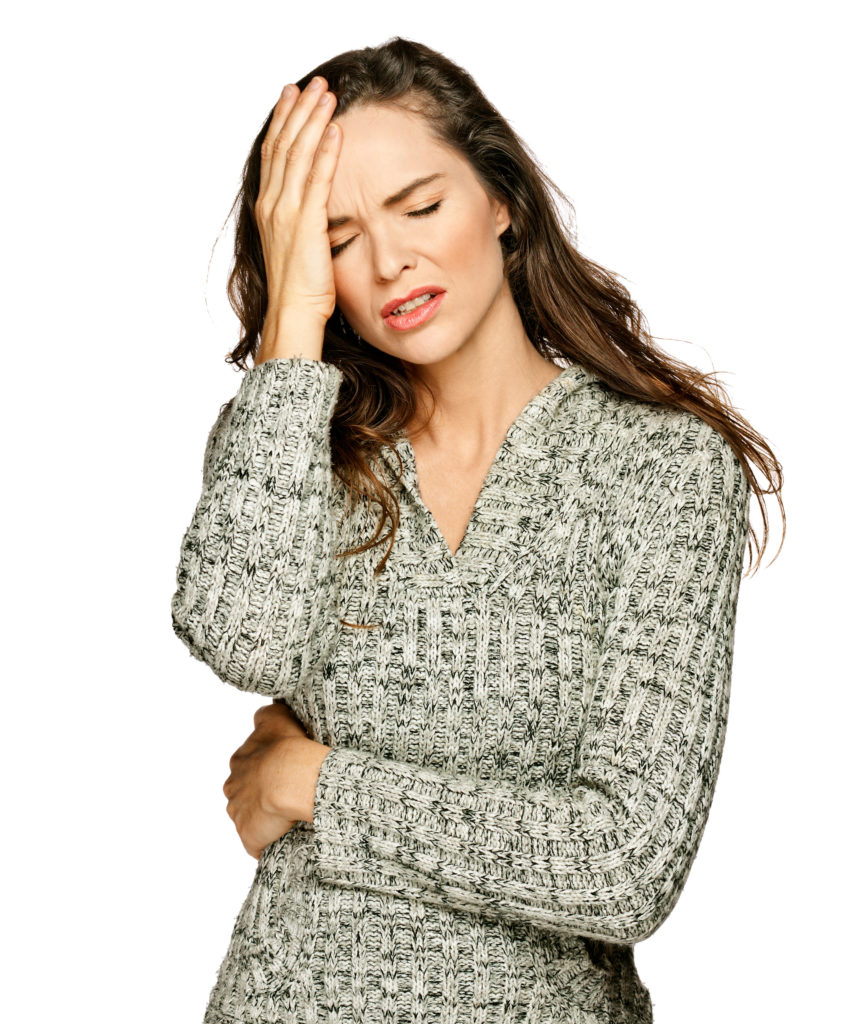 Perimenopause is the transition between child-bearing years and menopause. Pregnancy is still possible because ovulation still does occur, but this is the time when hormone levels begin to fluctuate. The average age that a woman enters perimenopause is 40, and it usually lasts around 4 years. However, that is just an average; some women begin much earlier, some later, and the duration can last anywhere from just a few months to 12 years.
Perimenopause is the transition between child-bearing years and menopause. Pregnancy is still possible because ovulation still does occur, but this is the time when hormone levels begin to fluctuate. The average age that a woman enters perimenopause is 40, and it usually lasts around 4 years. However, that is just an average; some women begin much earlier, some later, and the duration can last anywhere from just a few months to 12 years.
Menopause is when the ovaries stop producing and the menstrual cycle ceases all together. A woman is actually not confirmed to be menopausal until her cycles have ceased for a year. In the United States, the average age for reaching menopause is 51, however many other factors affect when this is, such as genetics and general overall health.
The process of perimenopause to menopause is generally gradual, however there are some factors which can make it more sudden such as:
- Smoking
- Family history
- Cancer – some cancer drugs cause the ovaries to stop producing hormones
- Hysterectomy – when the ovaries are removed, menopause occurs immediately; when the uterus is removed, but the ovaries remain, menopause will still generally be a little more accelerated
By the time menopause is reached, hormone production will have significantly declined from the younger, child-bearing years. However, in perimenopause, the hormones will fluctuate up and down. Estrogen, progesterone, testosterone, and even thyroid levels change.
Normally, the hormones estrogen and progesterone both increase and decrease according to a woman’s cycle, and maintain a delicate balance with one another. In early menopause, progesterone production will usually start to decrease, and estrogen levels will stay the same or increase. Not only can these fluctuations produce symptoms, the balance between the two can widen and increase symptoms and/or the extent of how they are experienced.
Not all women will experience symptoms of perimenopause, but some can feel them intensely. There has been research done as to why this is, but so far, nothing has been conclusive. Generally, the more healthy someone is the better they will tolerate these changes, though that isn’t always the case.
Perimenopause Symptoms may include:
- Hot flashes
- Breast tenderness
- Trouble sleeping
- Worsening PMS
- Irregular periods
- Shorter or longer periods
- Abnormal bleeding
- Vaginal dryness
- Decreased libido
- Urine leakage
- Frequent UTI
- Headaches
- Anxiety/panic
- Depression
- Heart palpitations
- Loss of bone mass
- Skin itching
- Worsened cholesterol
- Moodiness
- Skin changes
- Thinning hair
- Weight gain
- Gall bladder issues
- Fuzzy or foggy thinking
In early perimenopause, progesterone usually starts to decrease first. Progesterone helps to regulate the cycle; its main job is getting the uterus ready for pregnancy by thickening the uterine wall to prepare it for an egg. If there is no egg, progesterone levels drop, and the lining is discharged via menstruation.
As progesterone levels begin to fall in perimenopause, estrogen can begin to spike. This can cause more thickening of the uterine lining and create fibroids and cause endometriosis. Prolonged or heavier periods, and even clotting, may start to occur since these conditions are both fueled by estrogen.
It is not uncommon for women to experience depression. A lot of doctors will want to treat this with antidepressants, however most of the time those just treat the symptoms and not the actual cause.
There was a study published in the January 10th issue of Jama Psychiatry that was reported by Harvard University’s Women’s Health Watch. There were 172 perimenopausal and early menopausal women who participated between the ages of 45 and 65. These women were followed for six years. One group was given estradiol and intermittent progesterone pills and the other was given a placebo. 32% of the placebo group developed significant clinical depression compared to only 17% of the group taking the hormones.
The use of bioidentical hormones to treat and balance both perimenopausal and menopausal symptoms is quite effective. Because a bioidentical hormone is 100% identical to what is naturally produced in a woman’s body, they are safe and pose minimal risks for other potentially serious diseases. Exercise caution though, because a lot of hormones are marketed as “natural,” but unless they are bioidentical, they are anything but. Synthetic hormones which are still prescribed by some practitioners pose many serious health risks, such as breast cancer, cardiovascular diseases, and blood clots.
At Renewed Vitality, we only prescribe bioidentical hormones. All of your hormone levels are checked through blood testing so that treatment protocol is based on your individual needs. We take time to spend with you and learn exactly what you are experiencing so that we can help you feel healthy again.
A lot of factors affect hormone balancing. Make sure that you are eating a healthy diet without processed foods, getting enough exercise, and getting enough sleep. Bioidentical hormone replacement therapy can help to ease your mind and your body so that you can live your best life.

Hormone pellets are manufactured to be bio-identical to your own body’s hormones. They mostly come from extracts of natural sources e.g. soy, yam. Using bioidentical hormones in this way are reported to be effective in augmenting levels or replacing what a patient does not make any more. The hormone is implanted in the subcutaneous skin and releases small, physiologic doses of hormones regulated by a patient’s cardiac output to provide optimal therapy.